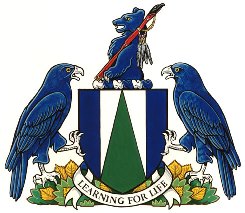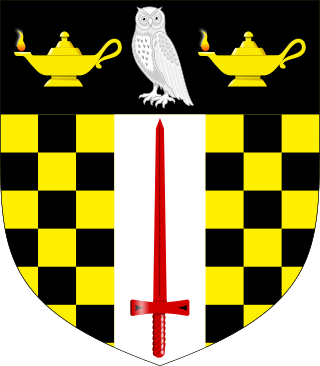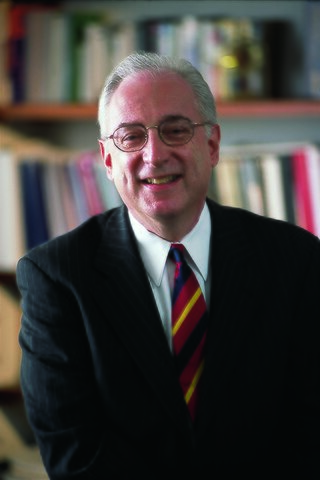
A community college is a type of undergraduate higher education institution, generally leading to an associate degree, certificate, or diploma. The term can have different meanings in different countries: many community colleges have an "open enrollment" for students who have graduated from high school. The term usually refers to a higher educational institution that provides workforce education and college transfer academic programs. Some institutions maintain athletic teams and dormitories similar to their university counterparts.

A liberal arts college or liberal arts institution of higher education is a college with an emphasis on undergraduate study in liberal arts and general sciences. Such colleges aim to impart a broad general knowledge and develop general intellectual capacities, in contrast to a professional or vocational curriculum. Students in a liberal arts college generally major in a particular discipline while receiving exposure to a wide range of academic subjects, including general sciences as well as the traditional humanities subjects taught as liberal arts. Although it draws on European antecedents, the liberal arts college is strongly associated with American higher education, and most liberal arts colleges around the world draw explicitly on the American model.

Whittier College is a private liberal arts college in Whittier, California. It is a Hispanic Serving Institution (HSI) and, as of spring 2023, had approximately 1,200 undergraduate and graduate students. It was founded in 1887. Whittier offers one graduate degree and a master's degree in education.
College and university rankings order institutions in higher education based on factors that vary depending on the ranking. Some rankings evaluate institutions within a single country, while others assess institutions worldwide. Rankings are typically conducted by magazines, newspapers, websites, governments, or academics. In addition to ranking entire institutions, specific programs, departments, and schools can be ranked. Some rankings consider measures of wealth, excellence in research, selective admissions, and alumni success. Rankings may also consider various combinations of measures of specialization expertise, student options, award numbers, internationalization, graduate employment, industrial linkage, historical reputation and other criteria.

Athabasca University (AU) is a Canadian public research university that primarily operates through online distance education. Founded in 1970, it is one of four comprehensive academic and research universities in Alberta, and was the first Canadian university to specialize in distance education.

Birkbeck, University of London, is a research university, in Bloomsbury London, England, and a member institution of the University of London. Established in 1823 as the London Mechanics' Institute by its founder, Sir George Birkbeck, and its supporters, Jeremy Bentham, J. C. Hobhouse and Henry Brougham, Birkbeck is one of the few universities to specialise in evening higher education in the United Kingdom.

The Western Association of Schools and Colleges was an organization providing accreditation of public and private universities, colleges, secondary and elementary schools in California and Hawaii, the territories of Guam, American Samoa and Northern Marianas Islands, in addition to the Marshall Islands, Federated States of Micronesia, Palau, the Pacific Rim, Peru, Czech Republic, Armenia, and East Asia.
This is an index of education articles.

Western Governors University (WGU) is a private, non-profit, online university based in Millcreek, Utah. The university uses an online competency-based learning model, providing advanced education for working professionals. Degrees awarded by WGU are accredited by the Northwest Commission on Colleges and Universities (NWCCU). The university was founded by 19 U.S. governors in 1997 after the idea was formulated at a 1995 meeting of the Western Governors Association to expand education offerings to the internet.
David Maxwell served as the 12th president of Drake University in Des Moines, Iowa from 1999 until 2015. He is the son of jazz trumpeter Jimmy Maxwell.

Richard Guarasci was the 18th president of Wagner College in Staten Island, New York. He took office on June 1, 2002 and, as of July 1, 2016, was the college's longest-serving president. He held the rank of professor of political science and taught in the areas of democracy, citizenship and American diversity. Following Guarasci's retirement on June 30, 2019, he became Wagner College's third president emeritus.
The National Survey of Student Engagement is a survey mechanism used to measure the level of student participation at universities and colleges in Canada and the United States as it relates to learning and engagement. The results of the survey help administrators and professors to assess their students' student engagement. The survey targets first-year and senior students on campuses. NSSE developed ten student Engagement Indicators (EIs) that are categorized in four general themes: academic challenge, learning with peers, experiences with faculty, and campus environment. Since 2000, there have been over 1,600 colleges and universities that have opted to participate in the survey. Additionally, approximately 5 million students within those institutions have completed the engagement survey. Overall, NSSE assesses effective teaching practices and student engagement in educationally purposeful activities. The survey is administered and assessed by Indiana University School of Education Center for Postsecondary Research.
The Collegiate Learning Assessment (CLA) is a standardized testing initiative in United States higher educational evaluation and assessment. It uses a "value-added" outcome model to examine a college or university's contribution to student learning which relies on the institution, rather than the individual student, as the primary unit of analysis. The CLA measures are designed to test for critical thinking, analytic reasoning, problem solving, and written communication skills. The assessment consists of open-ended questions, is administered to students online, and controls for incoming academic ability. An institution's average score on the CLA measures correlates highly with the institution's average SAT score. Institutional results are not published.
The Council of Public Liberal Arts Colleges (COPLAC) is a consortium of 30 public colleges and universities in 27 states and one Canadian province. Established in 1987, COPLAC advances the aims of its member institutions and drives awareness of the value of public liberal arts education in a student-centered, residential environment.

Liberal arts colleges in the United States are undergraduate institutions of higher education in the United States that focus on a liberal arts education. The Encyclopædia Britannica Concise defines liberal arts as a "college or university curriculum aimed at imparting general knowledge and developing general intellectual capacities, in contrast to a professional, vocational, or technical curriculum". Generally, a full-time, four-year course of study at a liberal arts college leads students to earning the Bachelor of Arts or the Bachelor of Science.

Cathy N. Davidson is an American scholar and university professor. Beginning July 1, 2014, she is a professor at the Graduate Center of the City University of New York.
MERLOT is an online repository and international consortium of institutions of higher education, industry partners, professional organizations, and individuals. MERLOT partners and members are devoted to identifying, peer reviewing, organizing, and making available existing online learning resources in a range of academic disciplines for use by higher education faculty and students.
The Illinois State UniversityCollege of Arts and Sciences administers liberal arts departments, schools, and programs at Illinois State University. The College of Arts and Sciences is divided into three groups: Science and Mathematics, Social Studies, and Humanities.
An undergraduate research journal is an academic journal dedicated to publishing the work of undergraduate research students. Such journals have been described as important for the professionalization of students into their academic discipline and a more substantive opportunity to experience the publication and peer review process than inclusion in the acknowledgments or as one of many authors on a traditional publication. The model has been described as well established in the United States and as a potential extension to the traditional undergraduate dissertation written by students in the United Kingdom. A case study of student participation in the journal Reinvention: A Journal of Undergraduate Research, found that the process challenges the "student as consumer" model of higher education.










